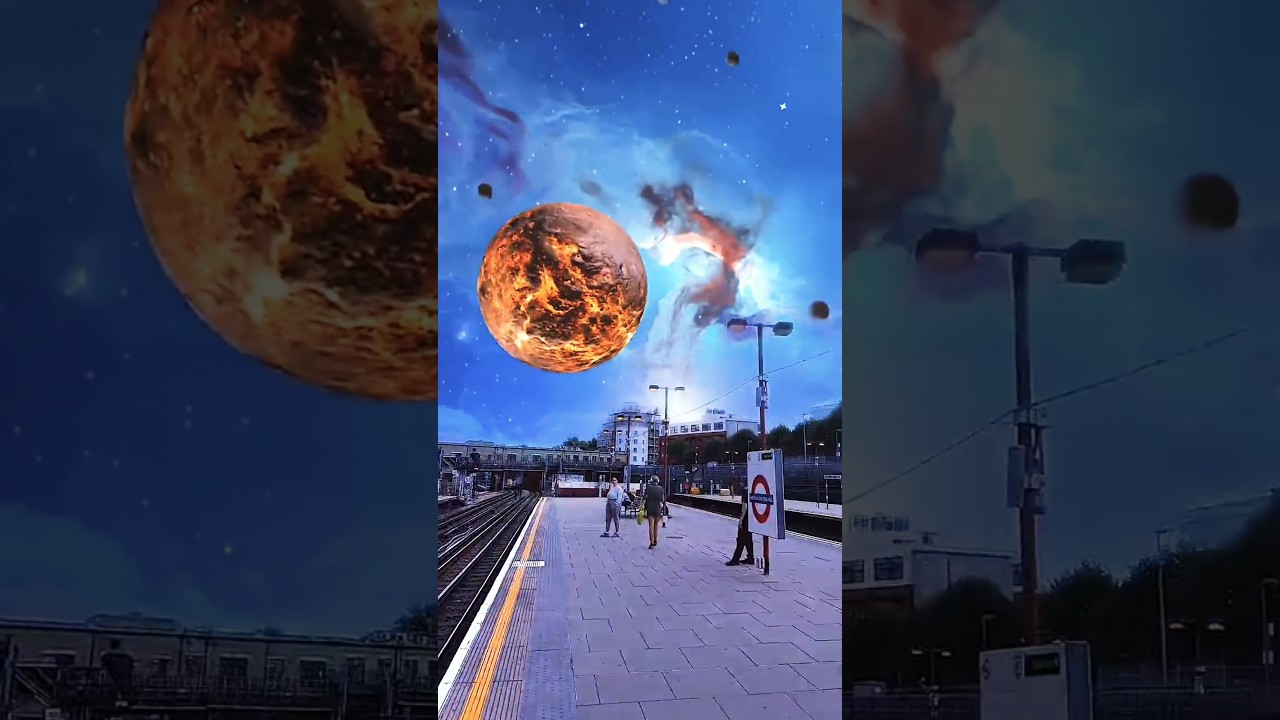
Destruction of Earth ☄
JUPITER Hitting EARTH 🌏 Everyone Run and Hide #shorts
The destruction of Earth is a concept that has been explored through various lenses, including science fiction, natural disasters, and scientific predictions. While such an event is largely hypothetical, there are several plausible scenarios—both cosmic and human-made—that could lead to the total obliteration of our planet or the collapse of the ecosystem as we know it. This essay will explore several of these possibilities, ranging from asteroid impacts and supernovae to human-driven factors like nuclear war and environmental degradation.
Cosmic Threats
One of the most widely discussed scenarios for the destruction of Earth involves an asteroid or comet impact. History tells us that such events have occurred in the past, with the most famous example being the asteroid impact that is believed to have caused the extinction of the dinosaurs about 66 million years ago. This event, known as the Chicxulub impact, resulted in widespread destruction and a mass extinction that wiped out approximately 75% of Earth’s species. If an asteroid of a similar size or larger were to hit the Earth today, the consequences could be even more catastrophic, potentially leading to the complete annihilation of human civilization and large-scale environmental destruction.
Asteroid impacts are just one of many cosmic threats. A more distant yet terrifying possibility is a supernova or gamma-ray burst occurring near Earth. Supernovae are the explosive deaths of massive stars, and if one were to happen within about 30 light-years of Earth, the intense radiation could strip away our planet’s atmosphere, leaving the surface exposed to harmful cosmic rays. Similarly, gamma-ray bursts, which are even more energetic, could devastate Earth if directed toward our planet. Though both events are rare, their potential for destruction is nearly unimaginable.
Another cosmic scenario involves the gradual expansion of the Sun. In about 5 billion years, the Sun is expected to enter its red giant phase, expanding significantly and potentially engulfing the inner planets, including Earth. While this is not an immediate concern, it is a stark reminder of the finite nature of planetary systems and the inevitable demise of the Earth on astronomical timescales.
Human-Made Threats
More immediate concerns regarding the destruction of Earth come not from cosmic events but from human activity. The proliferation of nuclear weapons during the 20th and 21st centuries has raised the specter of a nuclear holocaust, in which large-scale war could render Earth uninhabitable. The detonation of just a fraction of the world’s nuclear arsenal could cause a nuclear winter, a phenomenon where soot and debris block sunlight from reaching Earth’s surface, resulting in plummeting temperatures and the collapse of ecosystems.
In addition to nuclear war, environmental degradation is another serious threat that humans have the potential to exacerbate. Climate change, driven by the release of greenhouse gases, is already having profound effects on global ecosystems, and continued warming could lead to mass extinctions, food shortages, and the breakdown of social and political systems. Rising sea levels, more intense storms, droughts, and floods are just a few of the potential consequences of unchecked climate change. While climate change might not physically destroy the Earth itself, it could very well make the planet uninhabitable for humans and many other species.
Similarly, the overuse of natural resources, deforestation, and pollution all contribute to environmental destruction. The depletion of biodiversity, soil erosion, and freshwater shortages could result in societal collapses long before Earth faces any cosmic threats. In the worst-case scenario, human civilization could collapse due to resource wars, famine, and disease, leaving a ravaged planet that may take millions of years to recover.
Technological Dangers
Advancements in technology also bring with them new existential threats. Artificial intelligence (AI), nanotechnology, and biotechnology hold great promise, but they also pose risks. An uncontrolled AI system could hypothetically lead to widespread destruction if it surpasses human control. Additionally, the creation of new pathogens, either accidentally or deliberately, could spark pandemics far worse than any in history, potentially leading to mass extinction events. Though these are speculative scenarios, they underscore the importance of ethical considerations in technological development.
#EarthDestruction
#CosmicThreats
#AsteroidImpact
#Supernova
#ClimateChange
#NuclearWar
#EnvironmentalDestruction
#PlanetaryDefense
#HumanExtinction
#AIThreats
#FutureOfEarth
#GlobalCatastrophe
#MassExtinction
#SpaceDisasters
#EarthDoomsday
source



